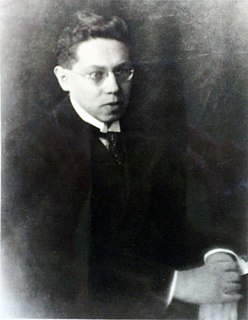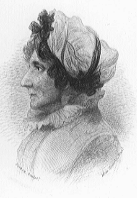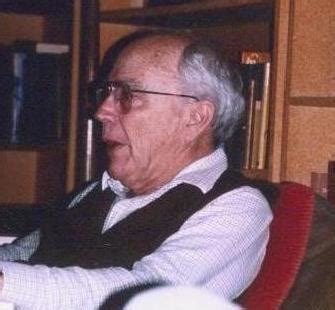A Quote by Rebecca Goldstein
One doesn't diminish a philosopher's achievement, and doesn't undermine its soundness, by showing how the particular set of questions on which he focused, the orientation he brought to bear on his focus, has some causal connection to the circumstances of his life.
Related Quotes
"You cannot believe what you are saying." "Well, no. Hardly ever. But the philosopher is like the poet. The latter composes ideal letters for an ideal nymph, only to plumb with his words the depths of passion. The philosopher tests the coldness of his gaze, to see how far he can undermine the fortress of bigotry."
Faced with a world of "modern ideas" which would like to banish everyone into a corner and a "specialty," a philosopher, if there could be a philosopher these days, would be compelled to establish the greatness of mankind, the idea of "greatness," on the basis of his own particular extensive range and multiplicity, his own totality in the midst of diversity.
I have studied the enemy all my life. I have read the memoirs of his generals and his leaders. I have even read his philosophers and listened to his music. I have studied in detail the account of every damned one of his battles. I know exactly how he will react under any given set of circumstances. And he hasn't the slightest idea of what I'm going to do. So when the time comes, I'm going to whip the hell out of him.
Let us confess a truth, humiliating to human pride; - a very small part only of the opinions of the coolest philosopher are the result of fair reasoning; the rest are formed by his education, his temperament, by the age in which he lives, by trains of thought directed to a particular track through some accidental association - in short, by prejudice.
As time passed and he grew to know people better, he began to think of himself as an extraordinary man, one set apart from his fellows. He wanted terribly to make his life a thing of great importance, and as he looked about at his fellow men and saw how like clods they lived it seemed to him that he could not bear to become also such a clod.
The question that faces every man born into this world is not what should be his purpose, which he should set about to achieve, but just what to do with life? The answer, that he should order his life so that he can find the greatest happiness in it, is more a practical question, similar to that of how a man should spend his weekend, then a metaphysical proposition as to what is the mystic purpose of his life in the scheme of the universe.







































